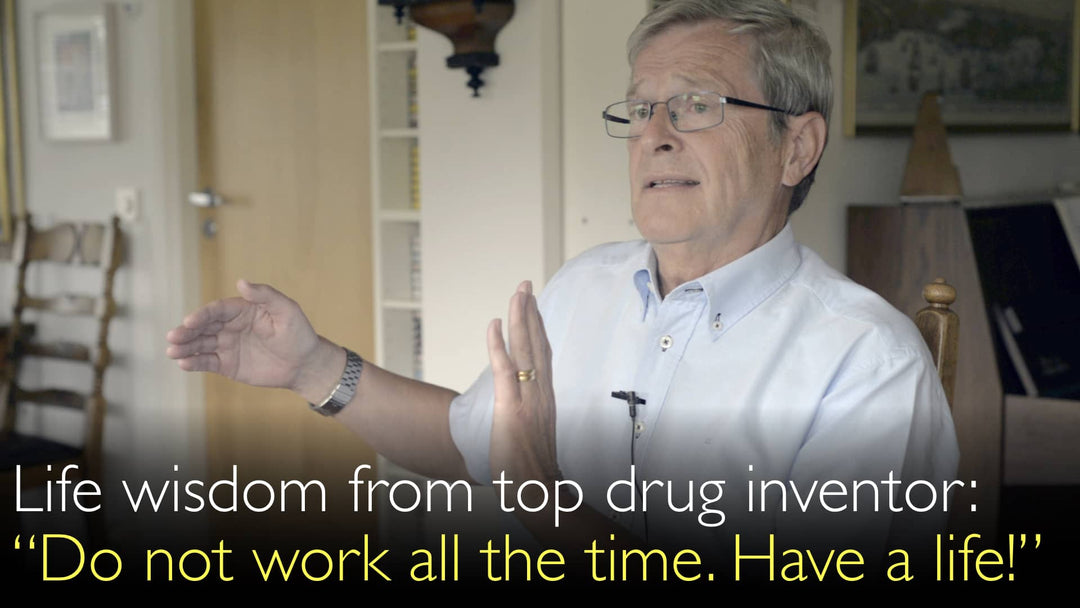Leading expert in neonatal medicine and inventor of the lifesaving surfactant Curosurf, Dr. Tore Curstedt, MD, explains the ongoing challenge of developing a synthetic surfactant for broader patient applications and shares crucial advice on achieving a sustainable work-life balance to prevent physician burnout, based on his own experience with a coronary bypass surgery.
Advancing Synthetic Surfactant Therapy and the Critical Need for Work-Life Balance in Medicine
Jump To Section
- The Drive for Synthetic Surfactant Research
- Expanding Surfactant Therapy Beyond Premature Babies
- A Personal Warning on Work-Life Balance
- Preventing Physician Burnout and Stress
- The Importance of Travel and Hobbies
- Building a Sustainable Research Career
The Drive for Synthetic Surfactant Research
Dr. Tore Curstedt, MD, continues to drive critical research in neonatal respiratory care despite being well past retirement age. The inventor of the natural surfactant Curosurf remains passionately committed to a significant scientific challenge: developing a fully synthetic surfactant. This dedication stems from a desire to create a more versatile and accessible treatment that could benefit a wider range of patients beyond the premature infants his original discovery has already saved.
Expanding Surfactant Therapy Beyond Premature Babies
The potential applications for a synthetic surfactant extend far beyond neonatal intensive care units. Dr. Tore Curstedt, MD, envisions treating other patient populations who suffer from surfactant deficiency or dysfunction. He notes that an "inactive surfactant" could be developed "for different reasons," suggesting potential uses in acute respiratory distress syndrome (ARDS) in adults or other lung injury conditions. This expansion represents the next frontier in surfactant replacement therapy, moving from a lifesaving neonatal treatment to a broader pulmonary therapeutic agent.
A Personal Warning on Work-Life Balance
Dr. Tore Curstedt, MD, offers a stark personal warning about the dangers of excessive work hours and chronic stress in medical research. He reveals that in his early fifties, he required an "emergency coronary artery bypass operation" directly attributed to constant stress from working "60, 70 hours a week" instead of a standard 40-hour workweek. This health crisis served as a turning point in his approach to career sustainability and personal wellbeing.
Preventing Physician Burnout and Stress
The experience fundamentally changed Dr. Curstedt's relationship with work. While maintaining his passion for research, he consciously reduced his stress levels, recognizing that sustainable productivity requires balance. His advice to other physicians and researchers is emphatic: "you shall not perhaps work all the time" and "you must also do things other than just doing research." This insight addresses the critical issue of physician burnout, which affects over 40% of medical professionals according to recent studies.
The Importance of Travel and Hobbies
Dr. Tore Curstedt, MD, specifically identifies travel as a vital counterbalance to his research career. Having visited approximately 100 countries, he emphasizes how exploring different cultures and environments provides necessary mental respite and perspective. This active pursuit of interests outside medicine demonstrates a practical approach to achieving the work-life balance he advocates, showing that dedicated professionals can maintain world-class research output while cultivating rich personal lives.
Building a Sustainable Research Career
The conversation with Dr. Anton Titov, MD, highlights how Dr. Curstedt has implemented changes to create a more sustainable career pattern. While maintaining his research drive toward developing synthetic surfactant, he does so without the destructive stress patterns of his earlier career. This model demonstrates that long-term contributions to medicine don't require self-sacrifice to the point of health compromise. Dr. Tore Curstedt, MD, embodies the principle that balanced researchers can make profound contributions while maintaining personal health and wellbeing throughout their careers.
Full Transcript
Dr. Anton Titov, MD: You have dedicated your life to saving the lives of tiny, prematurely born babies. How does it feel to still drive the research? What drives you at this point? You have already succeeded, but yet you work very hard and continue to work very hard.
Dr. Tore Curstedt, MD: Yes, I am old enough to have been retired for a couple of years. But I would like to see this synthetic surfactant. It is a challenge to have a synthetic surfactant on the market, to be able to treat not only premature babies but also other patients that need surfactant. Not perhaps active surfactant, but perhaps an inactive surfactant for different reasons.
I would like to see this synthetic surfactant happen.
Dr. Anton Titov, MD: Thank you very much. Is there anything else you would like to add or anything else you'd like to tell our viewers?
Dr. Tore Curstedt, MD: This is very difficult to say. Research—I like this research. To help different patients. But it is also very important that you shall not perhaps work all the time.
What I would like to say is that you must also do things other than just doing research. I can tell you, when I was a little more than 50, I had an emergency coronary artery bypass operation because I had stress all the time. I worked very hard—not 40, but 60, 70 hours a week.
But after that, I also say I would like to work this research. But today, I don't stress as much as before. I also like to travel. I like to travel to different countries. I have been to about 100 countries or something like that. We travel probably many times a year. That is very fortunate.
The life you live and also the work—the work and life balance—so hard. Balance, balance.
Dr. Anton Titov, MD: Hard to find in modern life. Well, Dr. Curstedt, thank you very much for this fascinating conversation. You have saved lives—hundreds of thousands of premature born babies. You improved the quality of lives of probably millions of babies around the world. It is truly an honor to meet you and to hear your story. Thank you very much.
Dr. Tore Curstedt, MD: Thank you very much.




